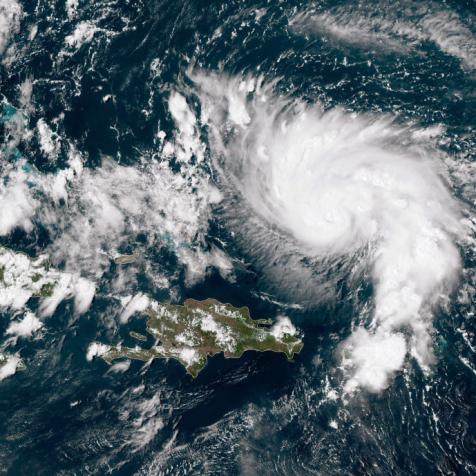
Shutterstock
Here's Why Static Shock Is Worse in Winter
The electric zap is caused by more than just dry air.
It happens every year: One day, you're safe to touch doorknobs, pet cats, and open car doors, and the next, you can't get near anything without the ZAP! of static electricity. What is it about winter that makes static shock so much worse? You may have heard it's because the air is dry, which is true. But what exactly does dry air have to do with anything?
Opposites Attract
Static electricity is just a buildup of electric charge. As you've probably noticed, different materials create more static electricity than others — some give up electrons, giving the materials a positive charge, and some attract electrons, giving them a negative charge. When you rub a balloon on your hair, for instance, your hair gives up electrons to the latex in the balloon.
Your hair loses electrons, giving it a positive charge. The balloon gains electrons, giving it a negative charge. And everyone knows that opposites attract. Voila, your hair sticks to the balloon. (You can see which materials are more likely to give up or attract electrons by checking the triboelectric series).
But collect enough static charge, and those electrons will be in dire need of somewhere to go. Walking across a nylon carpet with rubber-soled shoes will make your shoes collect more and more electrons ... until you touch a metal doorknob, and ZAP! The electrons all escape at once onto that highly conductive surface.
Come Dry Your e⁻s
So that's how static works, but why does winter make it worse? Well, the freer electrons are to travel, the less likely it is that they'll collect in once place. Air is an insulator, which means that it doesn't let electrons pass through it easily. Add water vapor on a humid summer day, however, and the game changes. Suddenly the electrons in your shoes can travel where they may, and they stop shocking your finger every time you reach out to pet your cat.
The amount of water in the air depends on the temperature: Warm air holds more water than cold air. But warming up cold air, the way we do indoors in winter, doesn't make it any wetter. In fact, because the dewpoint doesn't rise with the rising temperature, it makes the air even drier. That, as we've learned, makes it even harder for electrons to travel, and makes static shock worse than ever.
So how do you avoid it? Buy a humidifier. By pumping water vapor into your toasty-warm winter home, you can give electrons a place to roam free again and stop zapping you every chance they get.
This article first appeared on Curiosity.com.


















